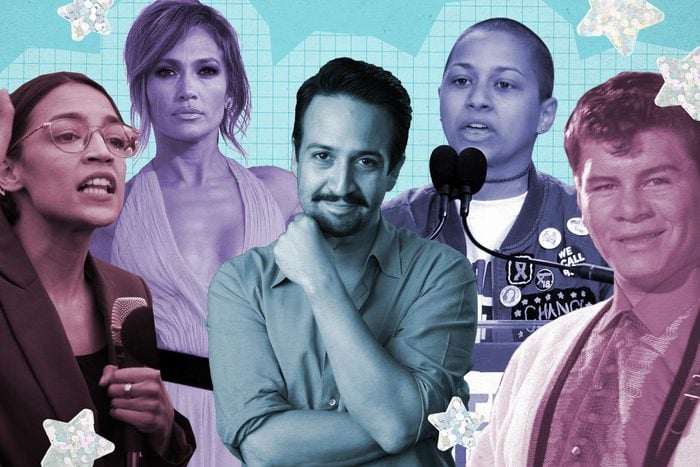
These famous Hispanic people deserve all the credit
The beauty and strength of America lie in its diversity. But while this melting pot results from the blending of many cultures, some of those cultures tend to get left out of the national discussion. Case in point: Hispanic Americans who have made significant contributions to the country and the world. For Hispanic Heritage Month (September 15–October 15), take the time to find out more about these impressive famous Hispanic people and give them credit where credit is due. Then, check out these books penned by Hispanic authors you won’t be able to put down.
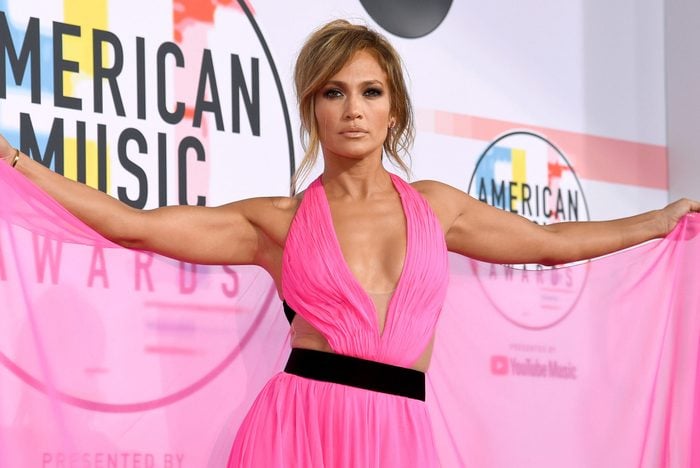
Jennifer Lopez
She may have started out as Jenny from the Block, but J.Lo has become a multi-hyphenate entertainment phenom, and she helped female celebrities break out of the boxes that Hollywood had always put them in. Lopez has been awarded many high honors over the years, including multiple American Music Awards, ALMA Awards, and Golden Globes. In 2020, Lopez wowed audiences with a fiery performance at the Super Bowl, sharing the stage with fellow Latina performer, Shakira. She has also become an advocate for several causes, winning an Amnesty for Artists award for her work to bring awareness to femicide in Ciudad Juárez and Chihuahua, Mexico. What else has been glossed over in the news and in American history books? The fact that these 13 things were invented by Hispanic people.
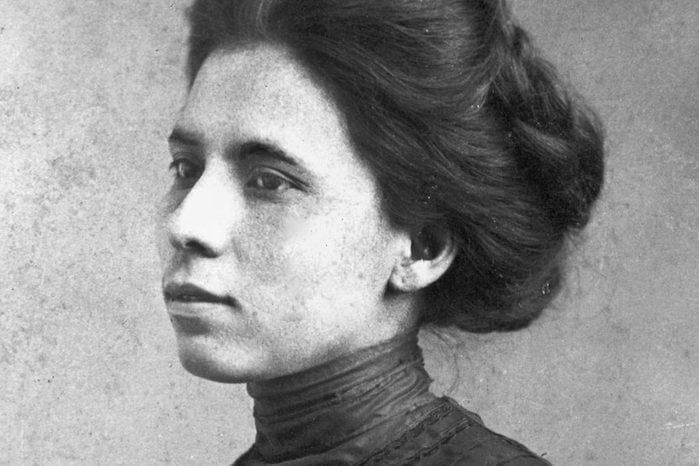
Jovita Idár
As the proverb goes, when you educate a woman, you educate a family. Jovita Idár believed that wholeheartedly. While working at her father’s newspaper, La Crónica, she used the platform to speak out against racism and in support of women’s and Mexican-Americans’ rights. After writing an article condemning Woodrow Wilson’s decision to send U.S. troops to the border, the Texas Rangers showed up at her door to shut down the paper. But she refused to let them in, literally putting her body between them and the door, and they left. Although the Rangers eventually succeeded in shutting down the paper, Idár continued to stand up for women and Mexican-Americans her entire life. Idár died in San Antonio in 1946, but she lives on in spirit as one of the powerful and influential Latinas throughout history who have changed the world.
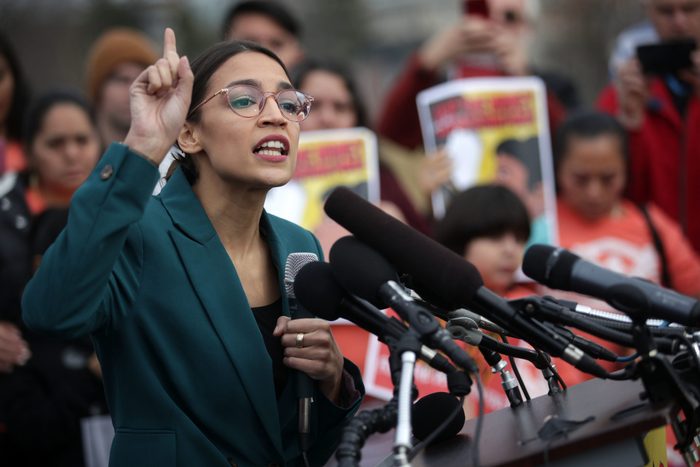
Alexandria Ocasio-Cortez
Sworn into office at the age of 29, Alexandria Ocasio-Cortez (AOC) is the youngest woman to ever be elected to Congress, and her win was a historic victory for women in government, particularly women of color. Representing New York’s 14th congressional district, Ocasio-Cortez is originally from the Bronx and is of Puerto Rican descent. Along with Senator Ed Markey, Ocasio-Cortez sponsored a bill known widely as the Green New Deal, aimed at addressing climate change and creating economic prosperity through environmentally sustainable jobs. Read more about why her election was one of the 15 moments that changed women’s history.
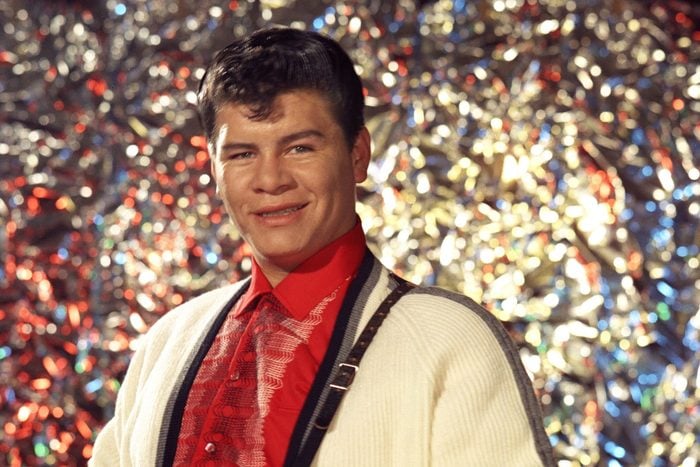
Richie Valens
Mexican-American singer Richie Valens quickly rose to fame in the late 1950s while still only a teenager. His producer insisted he change his last name from Valenzuela to Valens in order to be more widely accepted by White American audiences, and his breakout hits, “Donna” and “La Bamba,” put Valens on the level of other huge pop stars of the day. Sadly, together with the Big Bopper and Buddy Holly, Valens died in a plane crash on February 3, 1959, when he was just 17. Although his life was short, it was impactful. The song “American Pie” by Don McClean references the tragic incident as “the day the music died,” and Valens’ life was portrayed in the 1987 film La Bamba, starring Lou Diamond Phillips. But the fact that he introduced American audiences to Mexican music was his true legacy. Fans of music from the 1950s may enjoy these rarely seen vintage photos of fellow rock-and-roll heartthrob Elvis Presley.
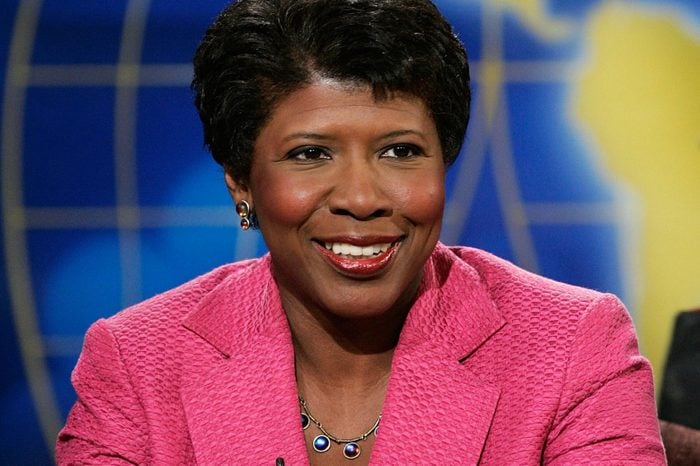
Gwen Ifill
Panamanian- and Barbadian-American journalist and author Gwen Ifill was a political correspondent and the co-anchor of PBS Newshour. Early in her career, Ifill was a reporter for the Baltimore Evening Sun and the Boston Herald American, then went on to become chief political correspondent for NBC News. She moderated the vice presidential debates in 2004 and 2008 and wrote a best-selling book on race relations in America, The Breakthrough: Politics and Race in the Age of Obama. Over the course of her life, Ifill received more than 20 honorary doctorates and the highest honor from the National Press Club, the Fourth State Award. She passed away in November 2016 from breast and endometrial cancers. Ifill is among a long list of notable Black Americans you didn’t learn about in history class.
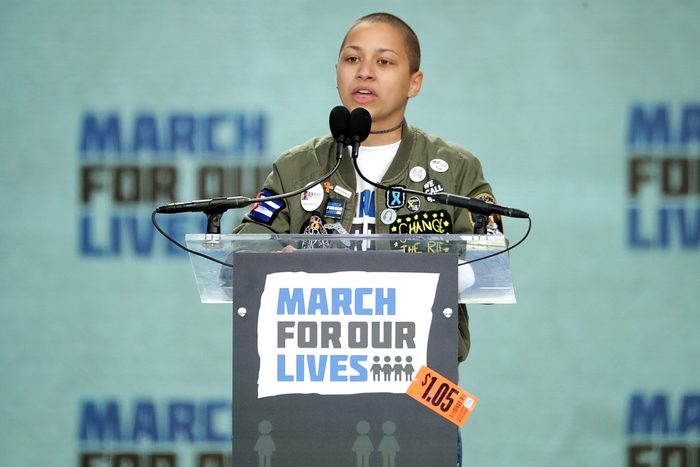
Emma González
Emma González was only 18 years old when 17 of her fellow classmates were killed in a school shooting at Florida’s Marjory Stoneman Douglas High School in 2017. The experience caused several of the students to become outspoken advocates for gun law reform, and they took their cause to social media and organized the March for Our Lives event in 2018. A Latina-American of Cuban descent, González gave a powerful speech before hundreds of thousands of attendees and criticized politicians for their lack of action on gun law reform, repeating the words, “We call B.S.” She then stood in silence for a tearful and heart-wrenching six minutes and 20 seconds to mark the time of the Parkland murderer’s shooting spree.
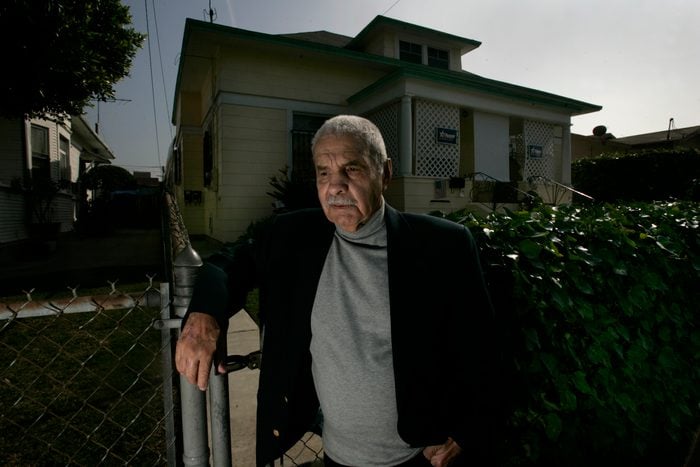
Guy Gabaldon
Gabaldon was just a boy when he was fostered by the Nakanos, a Japanese family in his Los Angeles neighborhood of Boyle Heights. He was able to learn basic Japanese and lived with the family until they were interned in camps after the start of the war. Gabaldon enlisted as a Marine and was stationed in the South Pacific in 1944 when he accomplished his legendary feat. He is said to have peacefully captured more than 1,500 Japanese soldiers by negotiating in the conversational Japanese he’d learned as a boy, and he was subsequently nicknamed the Pied Piper of Saipan.
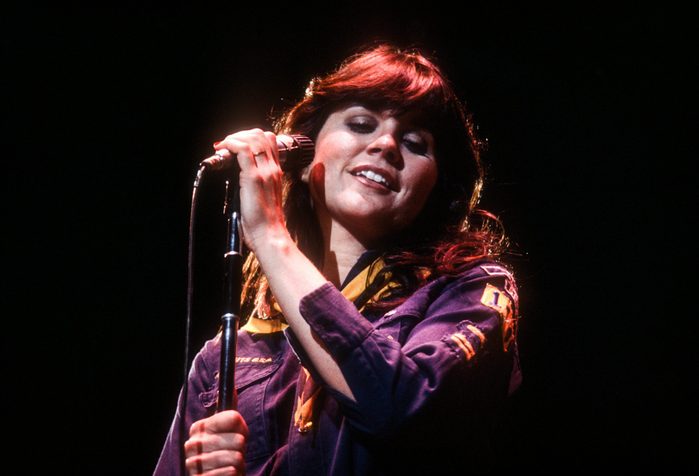
Linda Ronstadt
Mexican-American singer, songwriter, producer, and activist Linda Ronstadt went on to win many notable awards throughout her singing career, including 13 Grammys and a Kennedy Center Honor. Her 1987 album, Canciones de Mi Padre, became a global hit as a Spanish album and sold more than two million copies in the United States alone. Ronstadt has also been an outspoken advocate for migrant workers’ rights through the Arizona-based organization No More Deaths. She retired from singing in 2013, after announcing her diagnosis of Parkinson’s disease and its negative effects on her ability to perform. In 2014, Ronstadt was inducted into the Rock & Roll Hall of Fame, and she recently received a Hispanic Heritage Award in a virtual ceremony that aired on PBS. Here are more trailblazing women who made history.
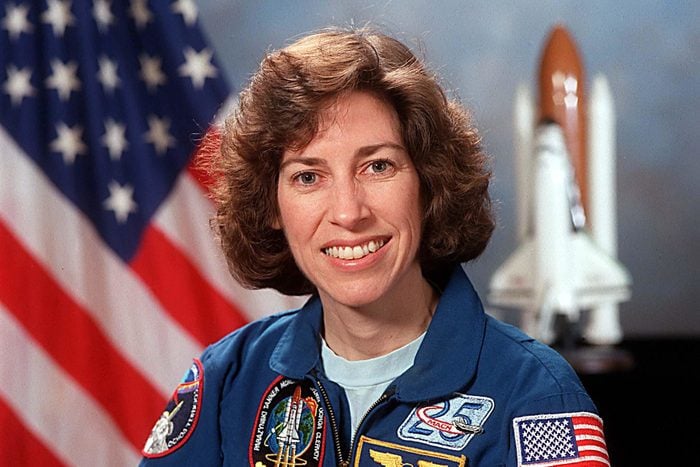
Ellen Ochoa
Born in Los Angeles and raised in La Mesa, California, Ellen Ochoa, PhD, was the first Hispanic woman in space. After earning her doctorate in engineering from Stanford University, Ochoa joined NASA in 1988 as a research engineer and was selected to be an astronaut in 1990. Her first mission in space was aboard the shuttle Discovery in 1993. She went on to serve three more missions, spending almost 1,000 hours in orbit. Ochoa was the 11th director of the Johnson Space Center and the center’s first Hispanic director. Her historic firsts put her in great company with other pioneering women who changed the world.
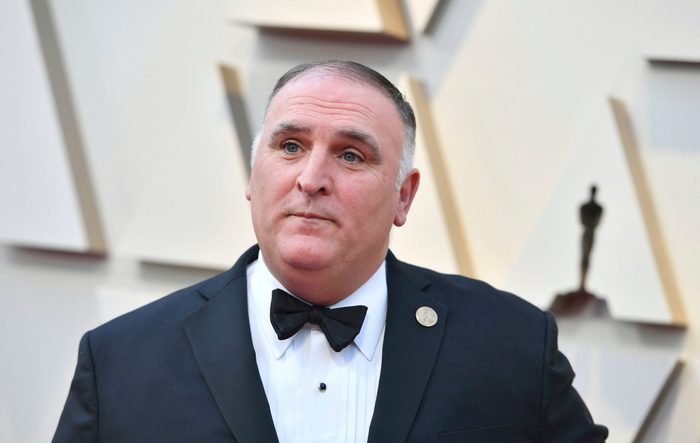
José Andrés
Critically acclaimed chef José Andrés came to the United States from Spain in 1991 and began a long career of award-winning culinary innovation. After the tragic 2010 earthquake in Haiti, Andrés formed the World Central Kitchen (WCK), an organization that provides hot meals to those affected by natural disasters. After Hurricane Maria ravaged Puerto Rico in 2017, he gathered 19,000 volunteers to serve 3.5 million meals to distraught residents who had limited access to electricity, clean water, and food. In 2019, Andrés fed furloughed workers during a month-long government shutdown. “We have shown that there is no place too far or disaster too great for our chefs to be there with a hot plate of food when it’s needed most,” Andrés wrote on the WCK website. Andrés has won the James Beard Award for both Outstanding Chef and Humanitarian of the Year and was nominated for the 2019 Nobel Peace Prize. These iconic newspaper covers went down in history.
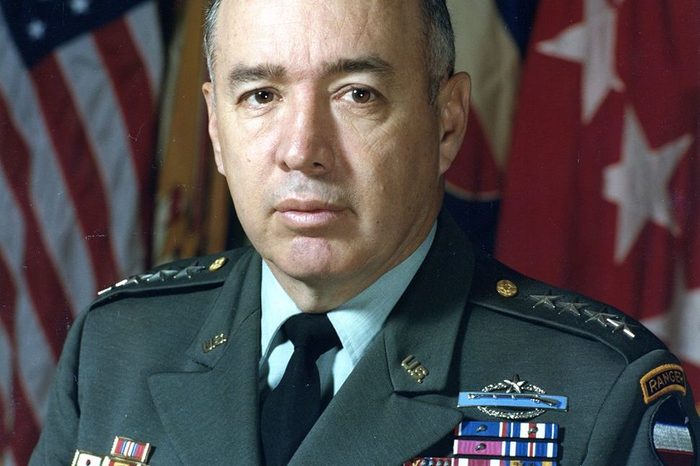
Richard Cavazos
Texan and Mexican-American Richard E. Cavazos was the first Hispanic person to become a four-star general in the United States Army. He graduated from Texas Tech University and went on to serve in the Korean War as the commander of the 65th Infantry Regiment. He then served in Vietnam as commander of the 1st Battalion, 18th Infantry Division. He became the first Hispanic four-star general of the United States Army in 1982, and received a number of military honors, including the distinguished service cross, the silver star, the bronze star, and the purple heart. Cavazos died in San Antonio in 2017.
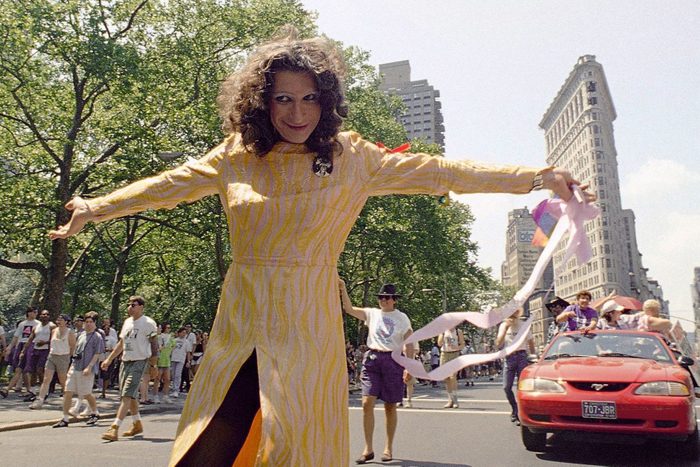
Sylvia Rivera
“We have to be visible. We should not be ashamed of who we are. We are numerous. There are many of us out here.” Venezuelan- and Puerto Rican-American Sylvia Rivera was an LGBTQ rights pioneer. New York City’s Stonewall Inn is now a historic landmark and destination for Pride celebrations, but in 1969, brave patrons like Rivera were resisting an unlawful raid by police. The riots at Stonewall were a turning point in history for equal rights. Rivera went on to be the co-founder of the Gay Liberation Front. The Sylvia Rivera Law Project, which provides legal representation and support to all those in the trans, non-binary, and non-gender conforming communities, was established in 2002 shortly after her death.
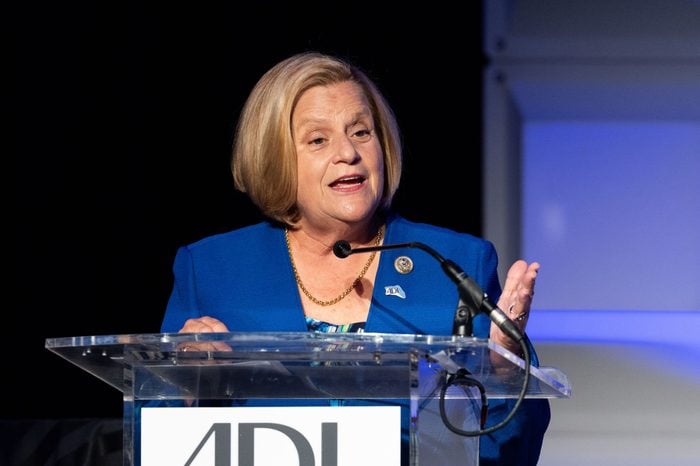
Ileana Ros-Lehtinen
Ileana Ros-Lehtinen was born in Cuba in 1952 and immigrated to the United States at the age of eight. Her family settled in Miami. She was elected to the Florida House of Representatives and then to the Florida Senate, becoming the first Hispanic woman to serve in both. In 1989, she ran for a seat in the U.S. House of Representatives against Democrat Gerald F. Richman, who used the campaign slogan, “This is an American seat.” Many viewed this as anti-Cuban and anti-Hispanic rhetoric, and in a backlash, Ros-Lehtinen won the election, making her the first Hispanic woman to ever serve in the United States Congress. Learn about Hispanic Heritage Month and how to honor the Hispanic people. Read about how this woman finally embraced her Latinx identity after 25 years.
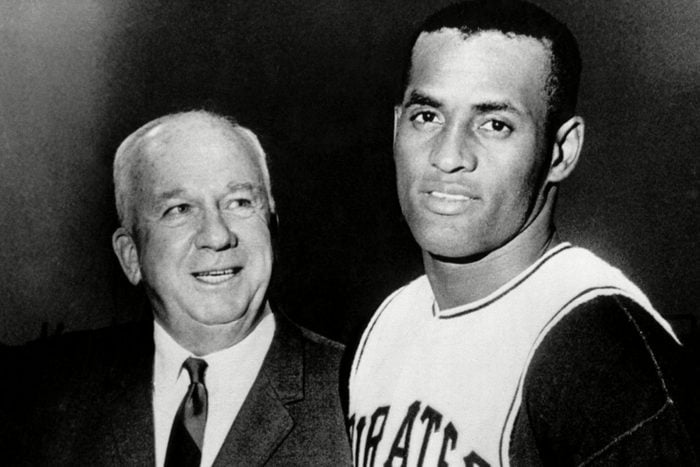
Roberto Clemente
Originally from Puerto Rico, Roberto Clemente Walker came to the United States to play major league baseball in 1954. He spent his career as a right fielder for the Pittsburgh Pirates. Although he was an elite athlete, achieving more than 3,000 base hits by the end of his career, Clemente faced racial bias in the United States. This led Clemente to become an advocate for Latino and Black players’ rights in baseball. He died in a plane crash in 1972, en route to bring relief to earthquake-stricken Nicaragua. He believed in a life of serving others. “Any time you have an opportunity to make a difference in this world and you don’t, then you are wasting your time on Earth.” Clemente was the first Hispanic baseball player to be inducted into the MLB Hall of Fame, and he helped pave the way for future generations of Latino ballplayers to join the game.
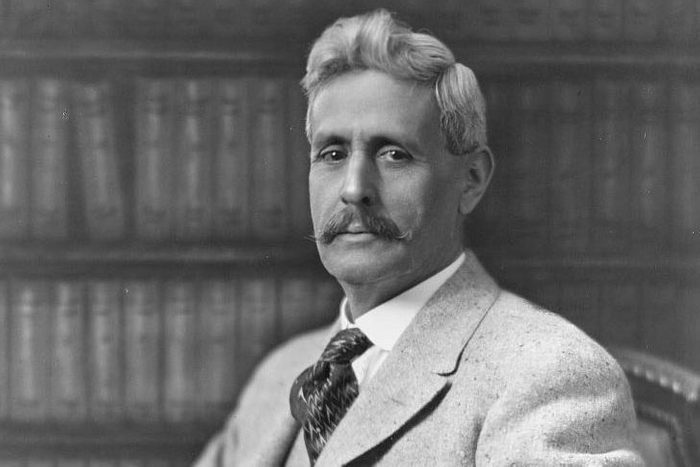
Octaviano Larrazola
Born in Chihuahua, Mexico, in 1859, Octaviano Larrazola immigrated to the United States as a boy and was raised in New Mexico. A Republican from New Mexico, Larrazola was a champion of civil rights and equal treatment for Hispanic Americans. This made him popular with New Mexican voters, who would elect him to be the fourth governor of New Mexico in 1918. Ten years later, he was elected to the United States Senate, making him the first Hispanic American to serve as a U.S. Senator.
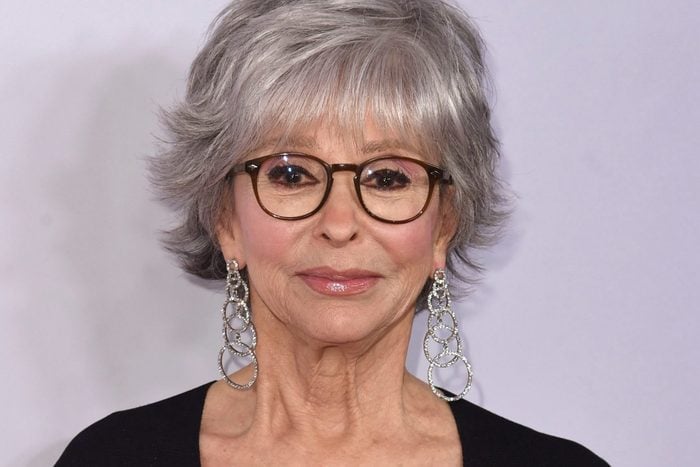
Rita Moreno
Born Rosita Dolores Alverio, Rita Moreno is the first Hispanic woman to win an Academy Award and is one of few people to hold the honor of being a “PEGOT” winner. (She has won Peabody, Emmy, Grammy, Oscar, and Tony Awards over the course of her career, which has spanned more than 70 years.) Although her long career has taken her from stage to screen, this Bronx girl is most famous for her portrayal of Anita in the 1962 film West Side Story, one of the best movie musicals, for which she won her Academy Award. Moreno has spoken openly about emotional trials in her life, including deep depression and a suicide attempt during a tumultuous relationship with Marlon Brando. A true survivor, Moreno continues to work and entertain today at age 89.
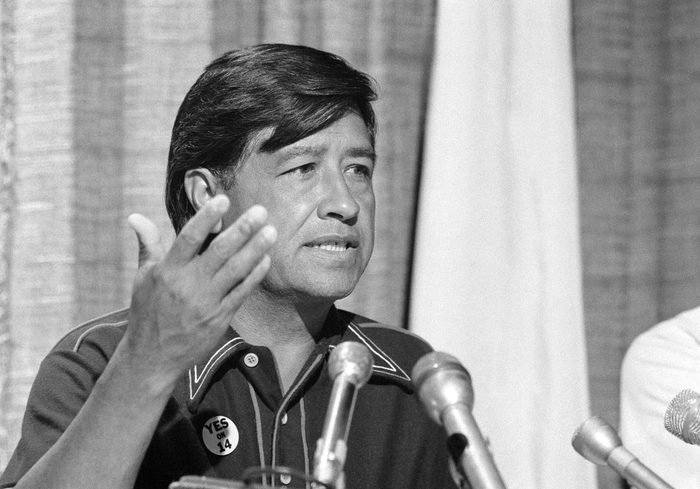
Cesar Chavez
Once called “one of the heroic figures of our time” by then-Senator Robert Kennedy, Cesar Chavez lived a life of service to justice and equal rights. As the first-generation American son of farmworkers in Arizona, he was drawn to a life of activism. After serving in the Navy in 1946, Chavez returned home and became a community organizer, first as a leader in the San Jose Community Service Organization (CSO), and then by establishing the National Farm Workers Association. Chavez led successful marches, strikes, fasts, and protests, and was inspired by peaceful resistance movements and leaders including Martin Luther King Jr. and Gandhi. His legacy lives on in Latinx and workers’ rights movements going on today.
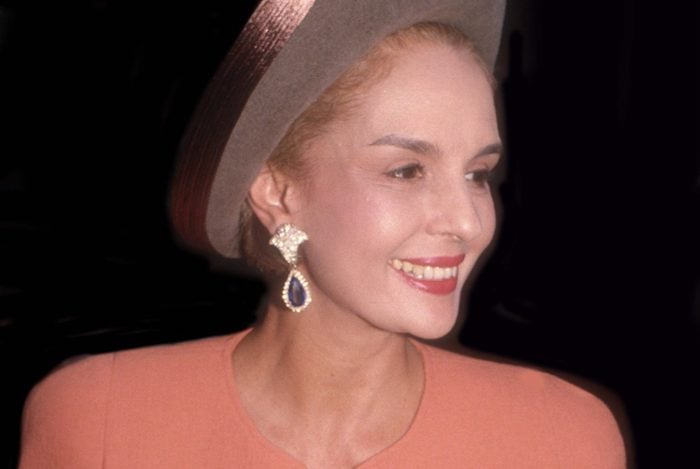
Carolina Herrera
Carolina Herrera has created an iconic style and a highly successful global brand. As a young girl, Herrera would often sew dresses for her dolls. In 1980, she launched her own line at the suggestion of her friend, Diana Vreeland, who also happened to be the editor-in-chief of Vogue. Herrera has dressed some of the most prominent of stylish women, including First Ladies Michelle Obama, Laura Bush, and Nancy Reagan and many notable names including Kate Middleton and Karlie Kloss. She has broken many barriers for Latinas in fashion, including having been featured on the cover of Vogue seven times. In 2009, Herrera became a naturalized American citizen.
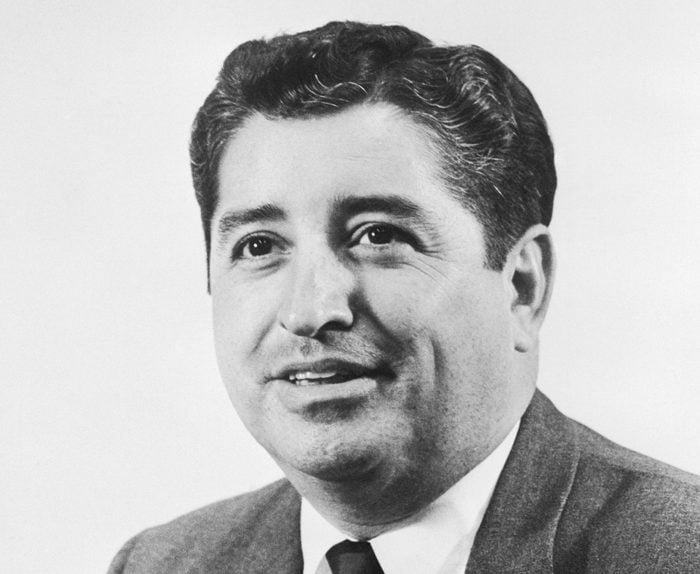
Ruben Salazar
Ruben Salazar was just an infant when his family immigrated to the United States from Ciudad Juárez, Mexico. He would go on to become one of the first Mexican-American journalists in mainstream media. His work was particularly significant because it highlighted the lives of Chicanos. Salazar was raised in El Paso and served in the army before becoming a journalist for the Los Angeles Times. In his career, he focused on injustices being done to those in the Chicano community. While covering a protest of the Vietnam War, the Chicano Moratorium in 1970, his life was cut short by a tear gas projectile thrown by the police.
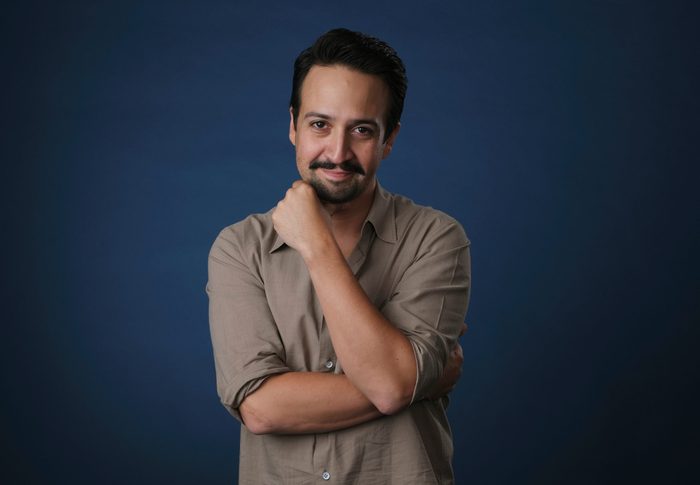
Lin-Manuel Miranda
Lin-Manuel Miranda is a Puerto Rican-American composer, lyricist, actor, writer, and activist. He’s most famous for having written the Broadway musical Hamilton. This groundbreaking hip-hop musical earned numerous awards, including the Tony Award for best musical in 2016. As Miranda accepted the Tony Award, he famously said, “Love is love is love is love is love is love is love is love cannot be killed or swept aside,” in part a reference to the shootings at the Pulse Nightclub in Orlando that had happened in the wee hours of the morning that same day. Miranda has received several Tony awards, an Oscar, a Pulitzer Prize, a Kennedy Center Honor in 2018, and was given the MacArthur Foundation’s genius grant in 2015. Alongside the Hispanic Federation, Miranda helped raise millions of dollars in efforts to support Puerto Rico after the destruction caused by Hurricane Maria. Check out these 8 epic Alexander Hamilton facts that the musical doesn’t mention.
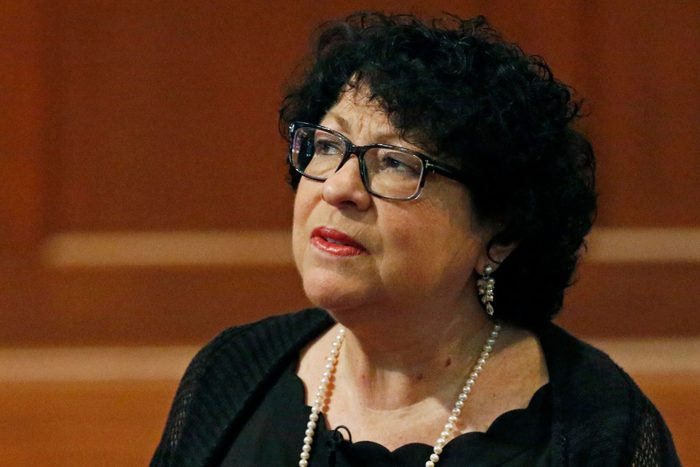
Sonia Sotomayor
In 2009, Bronx-born Latina Sonia Sotomayor became the first Hispanic Supreme Court Justice of the United States. She was nominated by President Barack Obama and confirmed by the Senate in a vote of 68 to 31. Sotomayor holds a B.A. from Princeton and a law degree from Yale University. Her long career includes time spent as assistant district attorney for New York County, being a judge to the U.S. District Court (appointed by George H.W. Bush), and serving as a judge on the U.S. Court of Appeals for the Second Circuit. Sotomayor has been outspoken about how her unique experience as a Latina has contributed to her work as a judge.
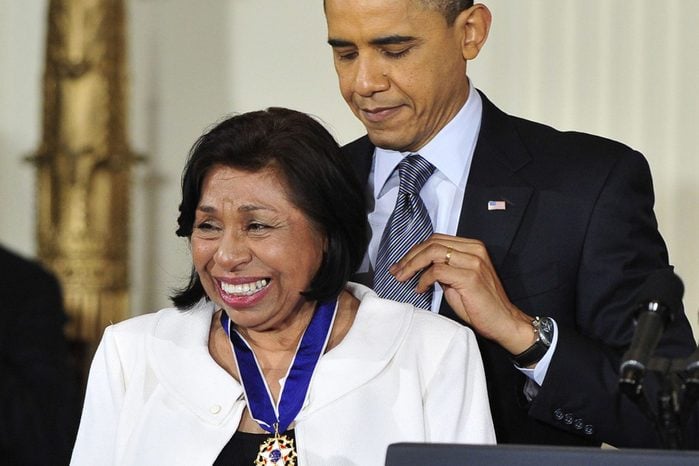
Sylvia Mendez
Not many know that seven years before 1954’s Brown v. Board of Education ruling integrated America’s schools, a young California girl’s family fought for her to attend an “all-White” school. Sylvia Mendez was a small girl when she tried to register to attend school in Westminster, California. The school’s superintendent testified that those of Mexican descent were “intellectually, culturally, and morally inferior to European Americans.” Sylvia Mendez’ parents, Gonzalo and Felicitas, would have none of it. They united with other local Chicano families and hired a lawyer. They won their case, and in 1946, California schools became integrated by law.
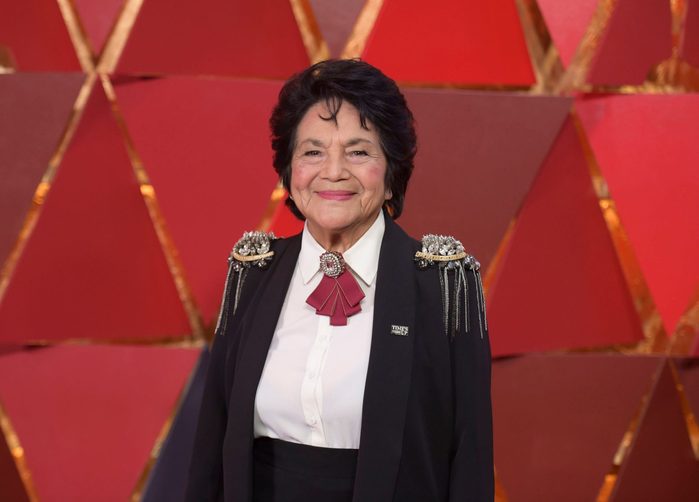
Dolores Huerta
Born as Dolores Clara Fernandez in northern New Mexico in 1930, Dolores Huerta found her voice while serving as an organizer for the Stockton Community Service Organization (CSO). It was during this time that she met a fellow organizer, Cesar Chavez. The two bonded, and in 1962, they formed the National Farm Workers Association (NFWA). Throughout her long career, Huerta has advocated for workers’ rights, women’s rights, and Latinx rights, and continues to do so to this day, at age 90. Barack Obama’s 2008 campaign slogan was taken from Huerta’s words from NFWA strikes: “Sí se puede,” which translates to “Yes we can.”
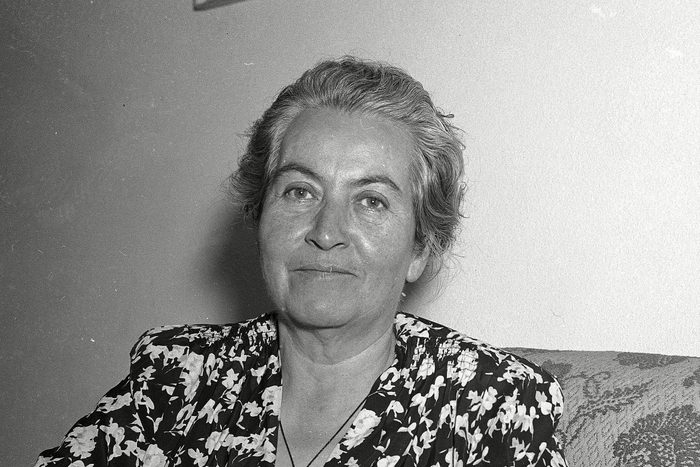
Gabriela Mistral
Born as Lucila de María del Perpetuo Socorro Godoy Alcayaga in Chile in 1889, poet and educator Gabriela Mistral was the first Hispanic person to win a Nobel Prize in Literature. Although she was no stranger to tragedy, she used her pain to create lasting works of poetry. Throughout her career, Mistral traveled the world as a writer and educator, teaching at Columbia University, Vassar College, and the University of Puerto Rico. She died in New York in 1957, 12 years after winning the Nobel Prize. Next up, check out these amazing Hispanic movies to stream right now.
